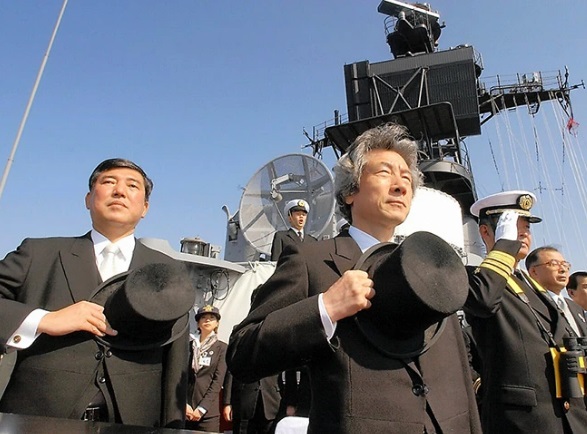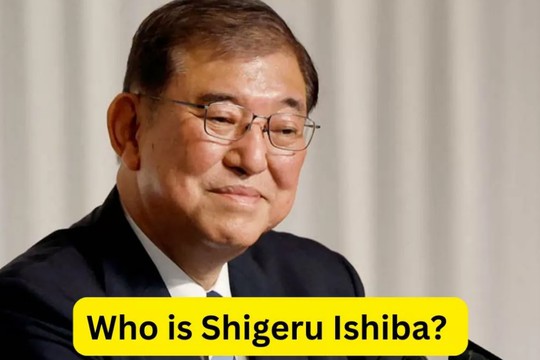Shigeru Ishiba’s unexpected ascendance shakes up the Tokyo political scene — and relationship with Washington, notes POLITICO.
In a year of political upheavals worldwide, here comes Japan. The country’s ruling party went with somewhat surprising option on the menu: Shigeru Ishiba, a 67-year-old Liberal Democratic Party backbencher and occasional party gadfly who had failed in four previous attempts to win the top job.
In the end, Ishiba could end up disrupting Japanese politics as much as the others and prove to be a challenging partner in America’s most important relationship in the Pacific.
Compared to the other options ideologically, he’s a kind of gruff Goldilocks. While he once left the party in a huff and didn’t last long in cabinet a decade ago, Ishiba falls mostly in the middle. Not too far to the right like Sanae Takaichi, whose harder patriotic edges and pro-business zeal evoke Trump comparisons. Her promise to visit the Yasukuni Shrine, an unapologetic monument to Japanese militarism over centuries, threatened to upset the recently forged rapprochement with South Korea. Ishiba isn’t as socially liberal as Shinjiro Koizumi, the 43-year-old son of a longtime former prime minister who would have brought dramatic generational change and inexperience.
The voters who chose the new leader, a mix of sitting members of parliament and wider party membership, were drawn to his pragmatism and his high approval ratings ahead of a national election coming at the latest next summer.
The officials — granted anonymity to speak freely — see Ishiba as a natural successor to Prime Minister Fumio Kishida. Ishiba supports the outgoing leader’s two biggest legacies on the international stage — the current defense buildup, which will see the defense budget double by 2027, and outreach to South Korea. (Kishida was pushed to step aside, Biden-like, over falling popularity ratings ahead of the election.)
Japan is the linchpin of U.S. efforts to contain and deter China in East Asia, and has been one of the Biden administration’s foreign policy success stories. Even as he became ensnared in some domestic economic and political troubles, Kishida thrived on the foreign stage and was an easy and appreciated partner. He went in lockstep with Washington to sanction Russia.
Ishiba, who formally takes power, will be a different and potentially unstraightforward Japanese leader to work with. He comes from outside the traditional elite, having been raised in rural areas, which he continues to take an interest in. He is, unusually, a practicing Protestant. They call him otaku, a nerd. He likes to collect models of military aircraft, a hobby that in my conversations became a code for being somewhat antisocial. He obsesses over policy details and isn’t afraid to challenge the experts around him. As defense minister a decade ago, his last post in cabinet, and in parliament, Ishiba earned a reputation for brusqueness with colleagues, making him less liked in the Diet and government quarter than the country at large.
For Washington, the question that really matters is Ishiba’s approach to the military relationship with America.
Here Ishiba has sounded more disruptive than either the Japanese or U.S. establishment would like. He approached one third rail by calling for the revision of the agreement on the deployment of U.S. forces here. He went for another in wanting to amend the constitutional provisions on Japanese pacifism. He has talked about an Asian version of NATO, which would take Japan from a security vassal of the U.S. to a peer, though still a close ally.
“He could be a problem for the U.S.,” says Gerry Curtis, the retired Columbia scholar of Japan who lives much of the year here. “He thinks the deal with the U.S. is outdated, has an occupation stink to it.” Ishiba is, as one of the preeminent Japan watchers in Washington Ken Weinstein texted me, “hardest for Americans to read of the major candidates.”
So what’s going on? A Japanese official who knows Ishiba offered the 60/40 theory over lunch the day after Ishiba’s victory. Every other similar status of forces agreement with the U.S., from Germany to South Korea to Italy, was revised in the last half century. Japan’s dates to 1960. Ishiba wants a deal to allow Japanese forces to base and train in the U.S. — in effect to become even more like a normal army than a self defense force. Abe took Japan down this road, and Kishida continued by boosting spending (Japan’s defense budget is the third-biggest in the world). But neither of Ishiba’s predecessors put the status agreement explicitly on the table the way Ishiba has. So 60 percent of Ishiba’s motivation is “to enhance deterrence and strengthen the alliance,” this official said. The other 40 percent? That’s about “restoring Japanese sovereignty,” and that’s the bit that makes Washington nervous.
Speaking after this victory, Ishiba said the time wasn’t right to raise any of these security questions. This will be a topic of discussion with the next U.S. president and shouldn’t even be mentioned before Election Day in November.
The new Japanese prime minister is “a realist,” says Hiro Akita, the Japanese business daily Nikkei’s foreign affairs specialist, who knows him. Ishiba thinks that Japan has to adjust to a changing world, he says. The next prime minister is no Japanese Charles de Gaulle who’ll seek to push America back as the old French leader did there half a century ago, he adds.
But still, this at first undramatic leadership change in Tokyo does potentially bring chop to the waters of the Japanese-American relationship that have been especially placid of late.
 Japanese Prime Minister Junichiro Koizumi (right) observes a warship of the Maritime Self-Defense Force in Kanagawa Prefecture in 2003. Shigeru Ishiba (left), then the director-general of the Defense Agency.
Japanese Prime Minister Junichiro Koizumi (right) observes a warship of the Maritime Self-Defense Force in Kanagawa Prefecture in 2003. Shigeru Ishiba (left), then the director-general of the Defense Agency.
Photo: Asahi
Shigeru Ishiba, the newly elected president of the ruling Liberal Democratic Party, has been repeatedly saying, “Japan is a sovereign and independent nation,” when giving speeches about his life's work on national security policies, writes ‘Asahi’.
That is because Ishiba believes the current relationship between Japan and the United States is problematically one-sided.
The roots of Ishiba's discontent trace to a U.S. military helicopter crash on the campus of Okinawa International University in August 2004 when he was serving as the director-general of the Defense Agency, the predecessor of the Defense Ministry.
The U.S. military put the area around the helicopter under a lockdown for about a week after the accident.
What derailed Japan’s investigation into the crash was the Japan-U.S. Status of Forces Agreement (SOFA), which determines the status and the rights of the U.S. military in Japan.
“Okinawa prefectural police weren't even allowed to enter the site. All the parts of the helicopter were removed by the U.S. military. Is this nation really a sovereign state?” Ishiba said recently in reflecting on the incident.
The U.S. military in Japan has been involved in incidents and accidents without pause.
The local municipalities that host U.S. military bases have been seeking revisions to the SOFA, which restricts Japan’s sovereignty.
In a speech Ishiba gave in Naha, Okinawa Prefecture, on Sept. 17, he said, “We should at least start reviewing the SOFA. We need to take responsibility as a sovereign nation.”
What he believes is necessary to revise the SOFA is to amend the Japan-U.S. Security Treaty, which is the basis for the agreement.
The Japan-U.S. Security Treaty is not a mutual defense treaty such as those between South Korea and the United States, or the Philippines and the United States.
Article 5 of the treaty imposes an obligation on the United States to defend Japan but Japan is not obligated to come to the assistance of the United States.
Instead, Article 6 of the treaty mandates that Japan provide bases to the U.S. military.
That is why Ishiba points out that the treaty is “the only asymmetric bilateral treaty in the world” and believes that Japan should work to change the pact to a mutual defense treaty and make the SOFA an equal status agreement.
“I believe that the Japanese people have procrastinated in thinking deeply about what independence is and what a sovereign state is,” Ishiba wrote in his book.
The Japan-U.S. Security Treaty and SOFA are among the most significant political issues that can determine the fate of a Cabinet.
However, Ishiba’s political acumen is considered unskillful.
He published his diplomatic policy on the website of Hudson Institute Inc., a research firm in the United States, on Sept. 27, the day he was elected as the new party president.
In the publication, Ishiba advocated revisions to both the Japan-U.S. Security Treaty and SOFA, saying, “The time is ripe to change this ‘asymmetrical bilateral treaty.’”
Sources close to Ishiba said that his camp was originally considering announcing his policy goal during the party election campaign. In Japan, those views would probably be perceived as just the usual "Ishiba ramblings" of a politician who has long been on the scene.
Ishiba's naive political skills cannot avoid criticism. The new LDP president believes in telling the truth with courage and conviction.
After gaining power, however, how he will realize attaining his desired goals in the actual political world will be tested, ‘Asahi’ concludes.
read more in our Telegram-channel https://t.me/The_International_Affairs

 10:14 04.10.2024 •
10:14 04.10.2024 •























